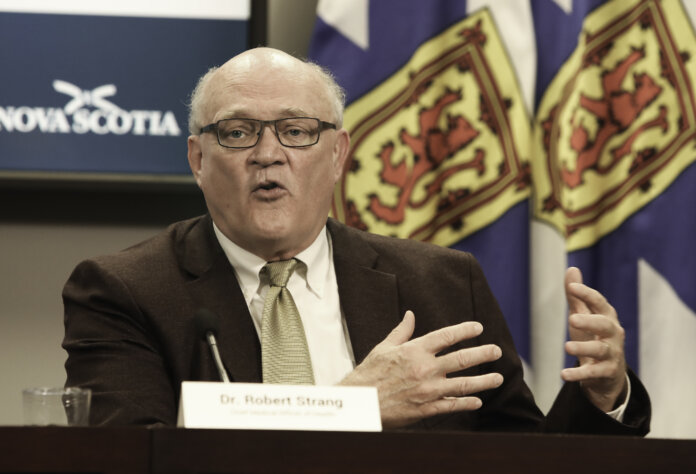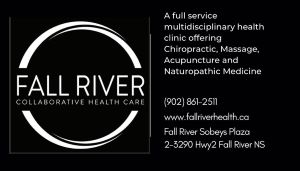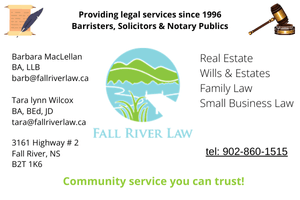HALIFAX: The province announced Jan. 5, 2022 that it is extending the current COVID-19 restrictions until the end of January and making changes to self-isolation requirements.
N.S. is also recommending long-term care facilities close to most visitors for two weeks and will launch the paid sick leave program next week.
“The Omicron variant has been rapidly making people sick across the province and continues to spread quickly,” said Dr. Robert Strang, the province’s Chief Medical Officer of Health. “Extending the restrictions will help stop the spread. We are learning more about Omicron every day and we are tweaking self-isolation requirements to better reflect the current disease.”
Restrictions that took effect on December 22 were set to expire on January 12 but will now continue until January 31. No new restrictions have been added.
The changes in self-isolation requirements are based on the latest evidence that shows a person with the Omicron variant is most infectious in the couple of days before and after symptoms develop, and the virus transmits more quickly between cases and their susceptible contacts.
The changes below take effect for most Nova Scotians on Friday, January 7, at 6 a.m. The changes do not apply to people who work in a high-risk healthcare setting, such as hospitals, home care and long-term care facilities – whether they test positive or are a close contact, they must notify their employer and follow their occupational health guidance, not the self-isolation requirements below.
New Self-Isolation Requirements for Positive Cases
The new requirements are determined by a person’s age, household situation and vaccination status:
Fully vaccinated person or a child 11 years old or younger
— must isolate for a minimum of seven days following the onset of symptoms or a positive test if asymptomatic
— can leave isolation after Day 7 if there are no symptoms or symptoms are improving and there has been no fever for at least 24 hours
Unvaccinated or partially vaccinated person or a person who is immunocompromised
— must isolate for a minimum of 10 days
— can leave isolation after Day 10 if they no longer have symptoms or symptoms are improving and there has been no fever for at least 24 hours.
Isolation requirements apply regardless of the type of test taken (rapid test or lab-based PCR test).
Changes to Isolation Requirements for Close Contacts
If a fully vaccinated person or child who is 11 or younger is identified as a close contact of a positive case:
– they should get tested 72 hours after exposure and watch for symptoms
– if they take a PCR test, no further testing is needed unless they develop symptoms
– if they take a rapid test, they should do a second rapid test 48 hours after the first.
Until they get their first negative test result, they should:
— stay at home except to go to school, work or child care
— work from home as much as possible
— practise physical distancing when at work or school, including while eating or drinking
— wear a properly fitted, three-layer mask
— only do essential activities such as getting groceries or prescriptions if there is nobody else who can do it for them.
For all others, including immunocompromised people who haven’t had a booster:
— they must immediately isolate for seven days
— they can leave isolation after two negative rapid tests done on Day 6 and Day 8 or after one negative PCR test done on Day 6 or 7
— if symptoms develop, they must remain isolated and get tested.
Isolating in Household
If someone with COVID-19 can isolate completely separately from the rest of their household, then other members of the household follow the direction for close contacts. However, if the person cannot isolate completely separately, then other members of the household must isolate along with them for the duration of their isolation – regardless of their vaccination status – and should be tested on Day 3 or 4 and again on the last day of isolation. They can leave isolation if the last test is negative.
Long-Term Care Facilities
The Department of Seniors and Long-Term Care is strongly recommending that long-term care facilities close to visitors, effective Friday at 6 a.m.
Two designated caregivers per resident should still be allowed to visit so they can provide physical and mental support.
The sector is currently experiencing staff shortages because people are in COVID-19 isolation. Temporarily closing to most visitors is strongly advised to minimize the risk of spread in facilities and the impact of exposures to both residents and staff.
The Department will reassess the situation on January 17.
Sick Leave Program Launch
The government will support Nova Scotians who need to miss work because of COVID-19, whether to get a vaccine shot or COVID-19 test, or isolate while waiting for a test or test results.
The Nova Scotia Paid Sick Leave Program will launch Monday, January 10, and is retroactive to December 20, 2021.
Quick Facts:
— there are no changes to self-isolation related to travel
— as of January 4, 89.7 per cent of Nova Scotians have at least one dose of the COVID-19 vaccine with 82.7 per cent fully vaccinated
Additional Resources:
For information on how to get tested or vaccinated and further details for close contacts, go to: https://www.nshealth.ca/coronavirus
Nova Scotia’s COVID-19 website: https://novascotia.ca/coronavirus




































